13 de junio 2020
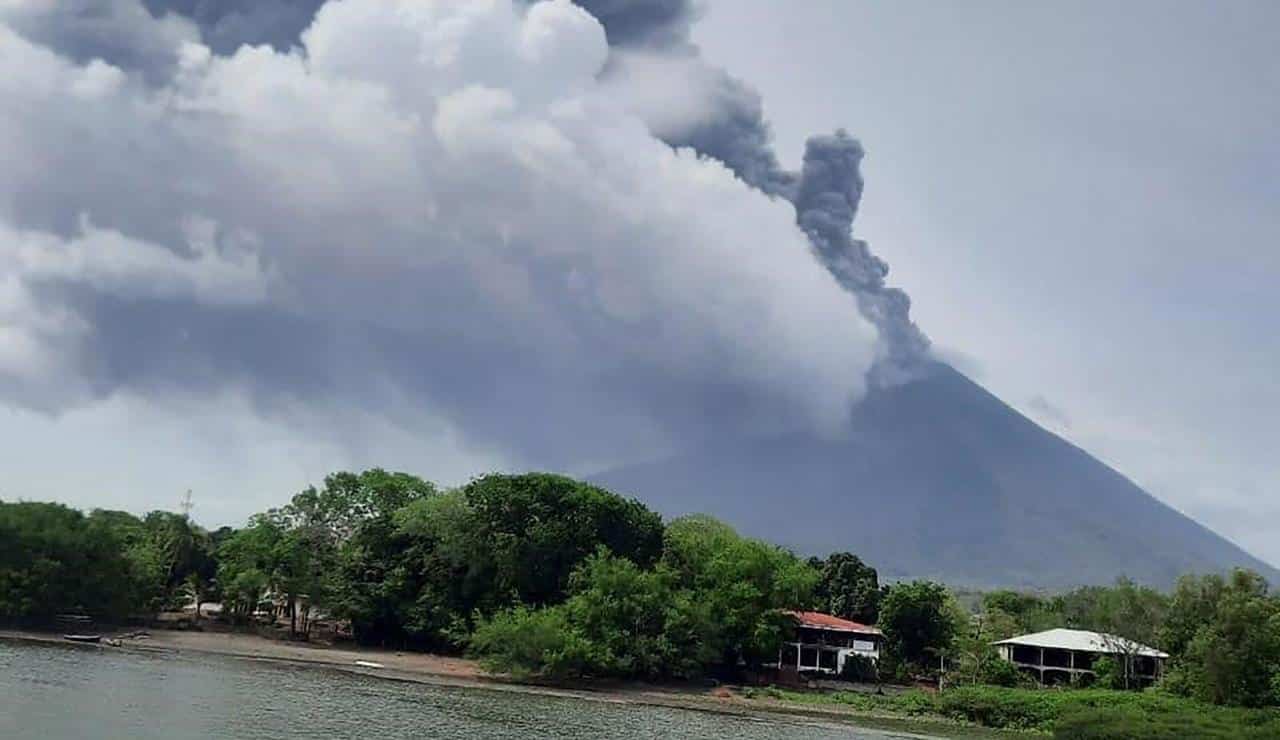
Strong Explosions from Concepcion Volcano on Ometepe Island, Nicaragua

PUBLICIDAD 1M
PUBLICIDAD 4D
PUBLICIDAD 5D
During the last two years, John Cerna was persecuted and expelled from his studies. Now he’s latest student to be imprisoned, with a 12-year sentence
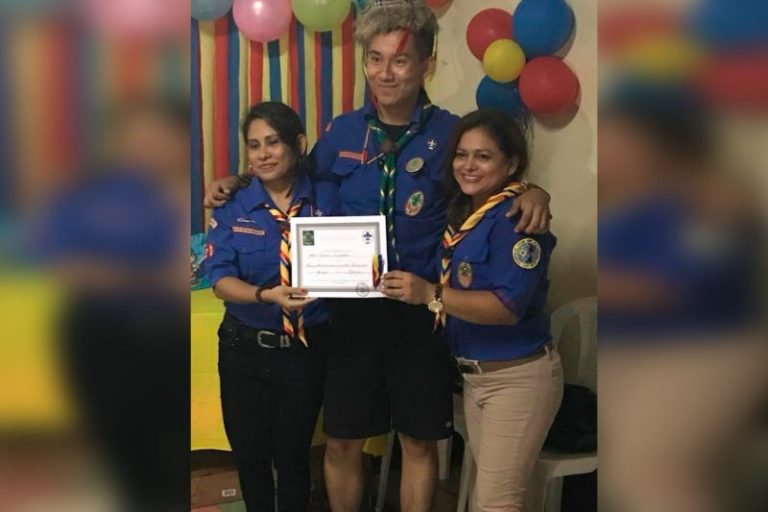
During the last two years
Weeks before his arrest, John Cerna realized that he was being followed. Some unknown men appeared at the house of a female cousin, asking for him. Days later, in the area where he rented a room, they warned him that the police were looking for a youth known as “Tigrillo” [little tiger].
He knew that this was the moment to find a more secure place to stay, as he had done dozens of times over the last two years. However, personal circumstances and the overall situation didn’t allow him to find a safer place in time. The police arrested him on February 28, 2020 and accused him of illegal possession and sale of drugs.
“They might find liquor or tobacco on me, but never drugs. I don’t use those, much less distribute them,” he assured his mother and one of his sisters two days later when they finally managed to see him at the infamous El Chipote jail. He didn’t need to tell them so: they knew it already.
John Cerna adopted the pseudonym “Tigrillo” during the 2018 April rebellion, when he became involved in the protests. Although he tried to protect himself, he didn’t succeed. Now he’s one of the 86 political prisoners that the Ortega regime continues to hold in prison. He’s the latest university student to be imprisoned by the regime.
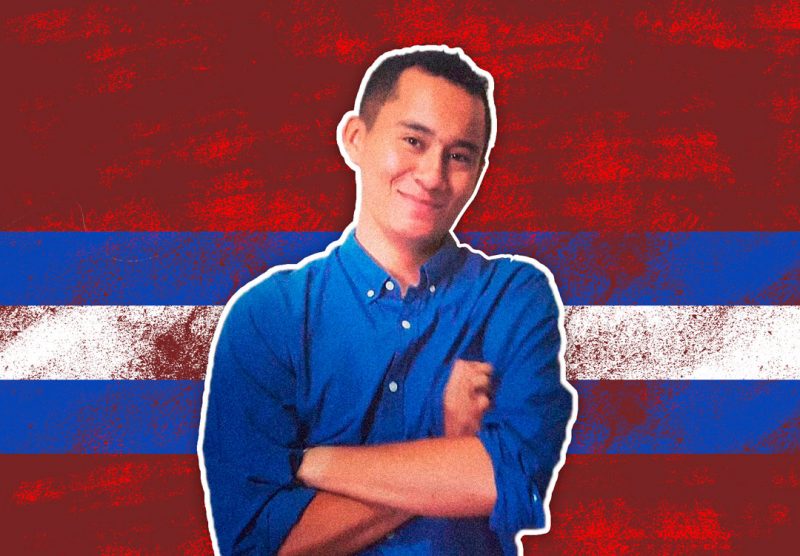
John Cerna “Tigrillo” Photo composite: Juan Garcia / Confidencial
“Tigrillo” moved from Matagalpa to Managua eight years ago. He arrived with hopes of graduating as a civil engineer. He was the first in his family to leave the northern department in pursuit of his dream of becoming a good professional.
John, 25, wanted to study in the public section of the National Engineering University (UNI), but he didn’t initially qualify for admission. With economic help from his parents, he entered a parallel private program of the University, the Institute for Superior Studies. The next year, he applied once more to the UNI and succeeded in being admitted.
He also enrolled in vocational courses in bricklaying and electricity, which he attended on Sundays. He would often tell his sister that these efforts were necessary because the labor market is very competitive.
“He did everything possible to finish his classes in the shortest possible time period. There was a time when he got sick in the middle of his professional studies, and had to leave. Then, when he returned to the university, he looked for a way to catch up,” his sister, Alba Cerna, commented.
John spent a decade as a member of the Boy Scouts of Nicaragua. That’s where he got the nickname Tigrillo that he would later use as his alias. He belonged to a group called “Tigers” and when they asked him to find a nickname, the name “Tigrillo” occurred to him, recalled his friend Eduardo Baez.
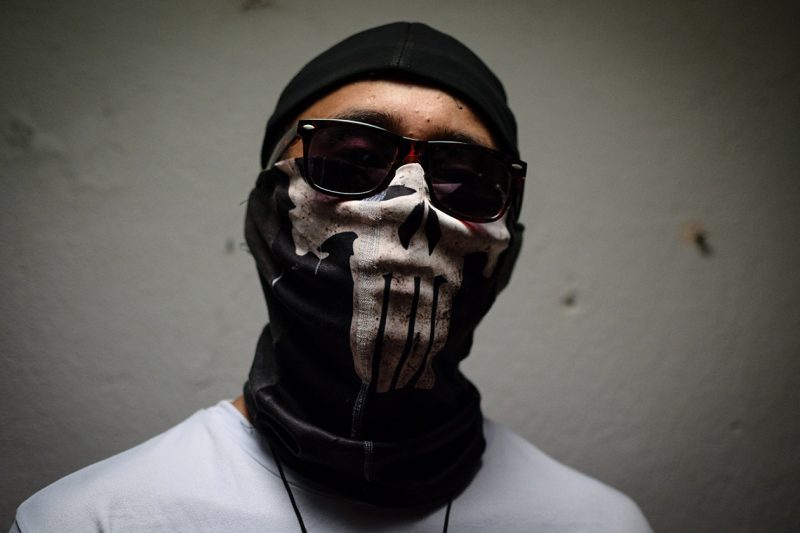
John Cerna, “Tigrillo”. For much of 2018, John Cerna had to stay underground to protect his life. Photo: Franklin Villavicencio / Confidencial
Prior to the April rebellion of 2018, John had had “differences” with members of UNI’s National Union of Nicaraguan University Students (UNEN). The government-affiliated student union had denied him the economic aid that was earmarked for the students. However, it wasn’t until April 18, 2018, that his life changed.
That year, Tigrillo was in the final year of his studies. He only needed eight more classes. His friends describe him as a humanist, disinterested in personal gain, the kind of person who puts others’ needs first, and a natural leader. That pushed him to join the protests, and there he began a friendship with Eduardo Baez.
“He’s always been a person with a lot of character. Unlike others, for whom it was all something new, it seemed like he was familiar with protest movements. He already had the strength and self-confidence that other kids didn’t,” recalled Baez.
On May 29, on the eve of the “Mother of all Marches”, a march held on May 30, 2018, Mother’s Day in Nicaragua, he was one of the last students to leave the university hall the students were occupying. The National Police were attacking the site, and a bullet grazed his left eye. They took him to the Baptist Hospital, but hours later he returned to the occupation.
“Here I am again,” he told Eduardo.
“What did you come to do here? Look at you!” Baez reacted with a smile.
“If you’ll die with me, I’ll die with you,” he responded.
To Eduardo, that phrase was characteristic of John. He used to repeat it to his friends, and he tried to live by it.
His participation in the protests and his identification as one of the UNI student leaders “earned” John an expulsion from his career. On the very day of his birthday – July 23, 2018, also National Student Day in Nicaragua – John led a protest in the facility, which put him back on the UNEN’s radar, stated Eduardo.
“When all of this happened, the authorities decided to apply a mechanism that they were using with other students. First, they completely denied him access to the university facility; they put his name on a list so that the [campus security guards] wouldn’t let him enter. Then they blocked his e-mail access, so he couldn’t register for any classes. That is, the UNI didn’t directly expel him, like the National University had done to students, but they cut off his access,” explained Eduardo.
The expulsion was one of the most severe blows that John Cerna would suffer that year. With only a few classes still pending, he lost all opportunity to graduate. He had managed to retrieve his academic record a few weeks before, but he couldn’t get it authenticated. Nonetheless, he assumed the consequences.
“In this situation, one has to sacrifice one thing to gain another,” he stated in December 2018, during an interview with the web magazine ‘Niu”. “I tell myself every day that there are no nights too long, nor days too dark. More important than everything else is to fight this battle that’s often social, psychological, and physical. Every day, there’s a certain wearing away. Life weighs heavily,” he reflected.
Due to this conviction, which sometimes seemed excessive, he came to argue with his family. They had begged him to stop when they saw the repercussions for protestors: attacks, persecution, jail and death. The last conversation he had with his father was an argument precisely about this. A short time later, in January, his father was killed in a transit accident.
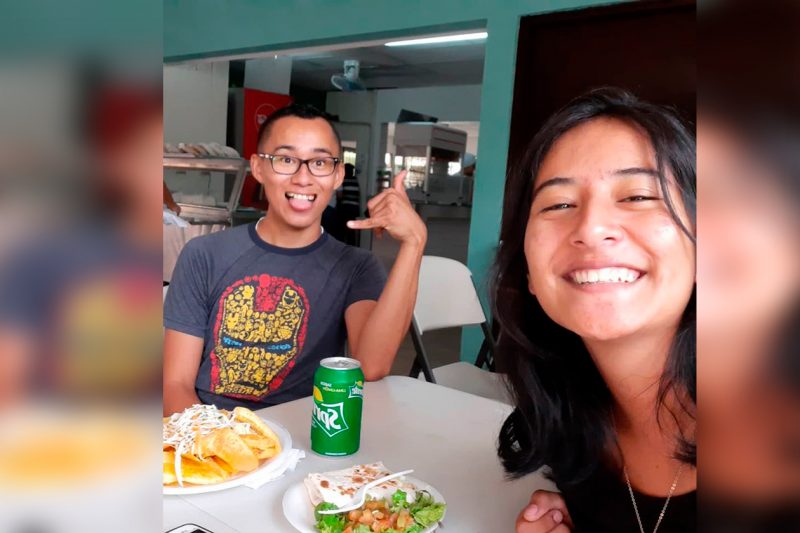
John with his sister, Alba Cerna, who has fought side-by-side with his mother for his release from prison. Courtesy photo: Confidencial.
Six weeks before being arrested, John Cerna and his family, but especially John, were hit with the emotional toll of his father’s death. John debated between staying to support his family in Matagalpa or returning to the capital.
“The last conversation I had with him was about our father,” his sister Alba remembers. “John was aware of how sad we were feeling, because my father was really the head of the family, and losing him was quite difficult,” she affirmed.
Eduardo recalled John’s sorrow that his last conversation with his Dad “hadn’t been good.” He resumed his engineering studies at the Central American University, but he was still considering returning to Matagalpa. He didn’t get a chance to make a final decision, because that’s when he was arrested.
His mother and his sisters have been affected both emotionally and economically, because they’ve had to travel to Managua repeatedly to denounce the arbitrariness of his imprisonment and keep his case visible.
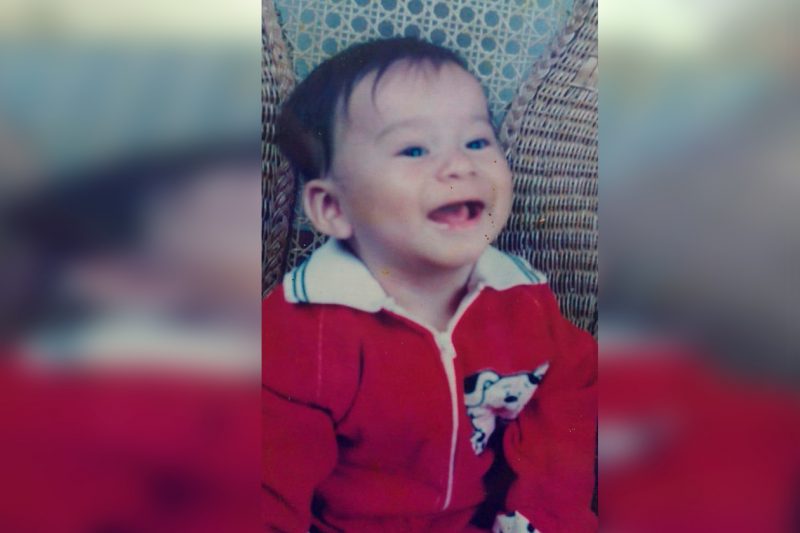
John Cerna – “Tigrillo” – as a baby. His friends and family state that his greatest wish is to be able to graduate as a civil engineer.
An hour and a half before being arrested, John had made an agreement with Eduardo that at 11 AM on that February 28, 2020, they would meet at his girlfriend’s apartment to go to a medical appointment. John had to get permission from the laboratory of the Central American University, but when he began walking towards the university, he noticed that some men in civilian clothes were following him. He would learn later that they were police.
Nervous and fearful of being abducted, John ran towards the zone where the electric company had its headquarters. The men followed him. Along the way, he managed to send a message to two of his friends: one to Eduardo, who he was supposed to see soon, and another to the youth who shared his room.
“They’re following me,” he wrote.
The police took him to the room he rented, and Eduardo managed to get a glimpse of him in the back of a police pick-up. His head was down, his gaze seemed lost, and he only showed his face for brief seconds, he recalled. That was the last time Eduardo saw him. That Sunday, John was sent before the judge, and the anomalies of his prosecution began.
“They didn’t notify anyone (that he was being taken to the courtroom), not even the lawyer that we chose,” his sister declared. The District Attorney’s office imposed a public defender, who supported the process and “declared him guilty”, Alba Cerna added.
That same day, John was transferred to the men’s prison known as La Modelo. At his hearing, the witnesses contradicted each other on the subject of his supposed drug possession. “The expert that was charged with the chemical analysis of the contents of the bag that my brother supposedly had in his backpack, herself affirmed that she had no previous preparation. They also claimed that no inspection was done at the moment of detention, because there were a lot of people around,” Alba noted.
The new defense lawyer that the family has contracted alleges that John’s health has deteriorated due to a dislocated shoulder, nerve damage, and two broken ribs from a police kick. Nonetheless, 84 days after his imprisonment, he was declared guilty, and eleven days after that he was sentenced: 12 years in jail and a fine equivalent to US $1,089. John has now been in jail for 104 days.
Archivado como:
PUBLICIDAD 3M
Confidencial es un diario digital nicaragüense, de formato multimedia, fundado por Carlos F. Chamorro en junio de 1996.
PUBLICIDAD 3D